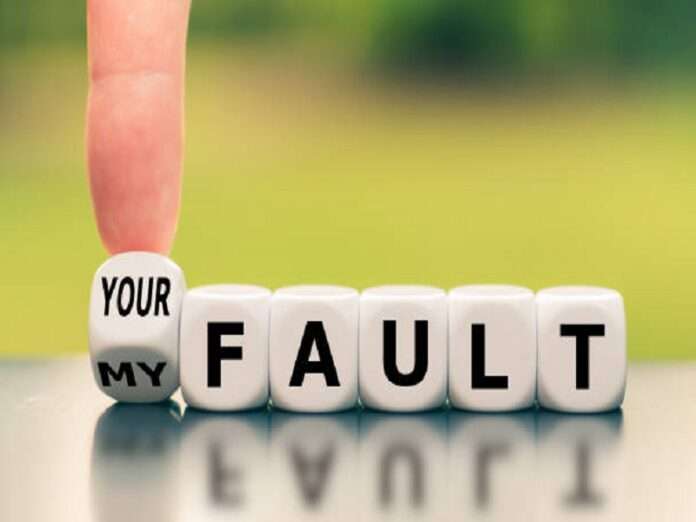Two back-to-back pieces published by Newsweek and Politico confirm that a vicious blame is breaking out after the counteroffensive predictably failed. The first was released on Wednesday and reported how “Zelensky’s Pivotal Counteroffensive Call Threatens to Divide Leadership” between the presidential administration that wants to prepare for a potential Russian offensive and the armed forces that want to continue pushing ahead. An unnamed source also alleged that politicians felt misled by the military.
As for the second, which came out the day later on Thursday, its author observed that “As Ukraine counteroffensive gets bogged down, it’s back to the drawing board”. The problem is that nobody knows what to do next, however, since they can’t agree on what went wrong to begin with. According to their report, everyone is pointing fingers at who’s to blame for getting hopes unrealistically high about this failed campaign. Here are some analyses of the relevant events leading up to this vicious blame game:
* 24 January: “Deciphering Ukraine’s Destabilizing ‘Deep State’ Dynamics”
* 14 February: “NATO’s Self-Declared ‘Race Of Logistics’ Confirms The Bloc’s Military-Industrial Crisis”
* 14 March: “The Washington Post Finally Told The Full Truth About How Poorly Kiev’s Forces Are Faring”
* 24 April: “US Propaganda Is Responsible For Unrealistically High Hopes About Kiev’s Counteroffensive”
* 29 April: “Poland’s Top Military Official Shared Some Unpopular Truths About The NATO-Russian Proxy War”
* 3 May: “Garry Kasparov’s Cognitive Dissonance Is Typical Of Kiev’s Average Supporters Right Now”
* 13 May: “Ten Critical Observations At The Onset Of Kiev’s NATO-Backed Counteroffensive”
* 21 May: “What Comes Next After Russia’s Victory In The Battle Of Artyomovsk?”
* 1 June: “Kiev Faces Seven Key Challenges Ahead Of Its Counteroffensive”
* 2 June: “Viktor Orban Is Right: The Counteroffensive Will Be A Bloodbath For Ukraine”
* 11 June: “Kiev’s NATO-Backed Counteroffensive Is The West’s Most Important Military Campaign Since WWII”
* 12 June: “CNN Admitted That Kiev Lost Around 15% Of Its Bradley Infantry Fighting Vehicles In A Week”
* 14 June: “How Will The US Respond After The Failure Of Kiev’s NATO-Backed Counteroffensive?”
* 20 June: “Putin Strongly Suggested That A Political Solution To The Proxy War Is Still Possible”
* 21 June: “Lavrov Sent The Clearest Signal Yet That Russia Is Interested In Freezing The Proxy War”
* 5 July: “Will Zelensky Become The New Saakashvili?”
* 7 July: “Pay Attention To What NATO Chief Stoltenberg Conspicuously Omitted From His Latest Speech”
* 8 July: “Cluster Munitions Are The Latest Wunderwaffe That’s Doomed To Disappoint The West”
* 10 July: “Removing Ukraine’s MAP Requirement For Joining NATO Isn’t As Important As It Seems”
* 17 July: “Kiev’s Latest Attack Against The Crimean Bridge Was A Desperate Distraction”
* 24 July: “The New York Times Finally Told The Truth About The Failure Of Kiev’s Counteroffensive”
* 6 August: “The Jeddah Talks Backfired On Zelensky”
* 11 August: “The Polish President Said Kiev Isn’t Doing The West Any Favors & Its Counteroffensive Failed”
* 16 August: “Bolton’s Criticism Of Biden’s Ukraine Policy Doesn’t Stand Up To Scrutiny”
Simply skimming the headlines reveals that the counteroffensive’s failure was predictable due to Russia’s growing edge in the “race of logistics”/“war of attrition”, yet it still went ahead anyhow for ulterior military and political reasons. Regard the first, these concerned the West’s interest in obtaining invaluable battlefield data for its weapons, while the second involved Kiev’s inability to walk back its maximalist demands for ending the NATO-Russian proxy war in Ukraine.
This disaster was therefore entirely avoidable, which the Western public is quickly realizing as it begins to dawn on them that their over $165 billion in taxpayer-provided aid to Kiev failed to break the stalemate that set in last winter. The wisest among them might soon start wondering why a ceasefire wasn’t agreed to back then in order to focus on war-torn Ukraine’s reconstruction, which is why their leaders are now desperately trying to shift the blame to redirect rising public anger away from themselves.
Tens of thousands of Kiev’s troops were killed since January and tens of billions of dollars spent just for the sake of gaining less than 100 square miles, which wasn’t worth it from the perspective of average Ukrainians or Westerners. The only party that profited was the military-industrial complex that obtained invaluable battlefield data for its weapons, though this was at the expense of further depleting the West’s stockpiles, which makes it more difficult for this New Cold War bloc to respond to sudden crises.
On the Ukrainian front, military-political divisions are reportedly widening per Newsweek’s report, which also claims that Russia is gearing up for its own offensive that’s slated to begin sometime this fall before scaling into a full-fledge one by next spring. Meanwhile, the Western front is less dramatic per Politico’s report as officials mostly try to pin the blame on the expert and media communities, though opposition parties like the Republicans are also of course trying to capitalize on this ahead of coming elections.
These latest observations about how counterproductive the counteroffensive has been for Ukrainian-Western unity, solidarity within their respective ranks, and Ukraine’s human and military resources mean that Russia’s prior interest in a ceasefire can no longer be taken for granted. Russia arguably has more to gain by continuing to fight than freezing the conflict since its enemies’ recent weaknesses raise the chances that all the entirety of those former Ukrainian territories that it claims can finally be liberated.
That’s not to say that there’s no possibility of Russia agreeing to a ceasefire in the unlikely event that the US complies with President Putin’s demand from late June to cut off arms shipments to Ukraine as the prerequisite for resuming related talks, but just that it would be his most surprising “goodwill gesture” yet. In any case, he’s the Supreme Commander-in-Chief, so whatever he ultimately decides – whether it be another offensive or a return to ceasefire talks – should be respected by Russia’s supporters.







